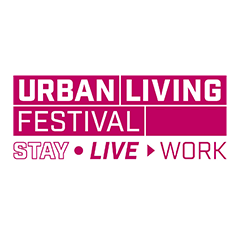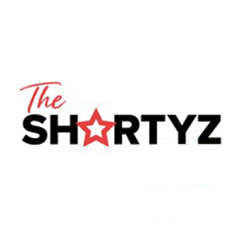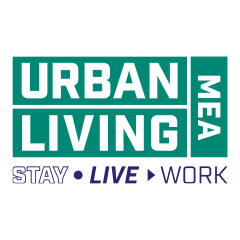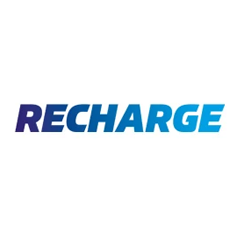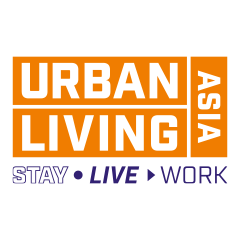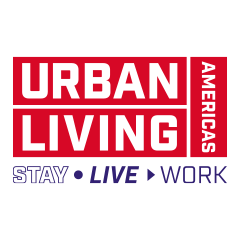A is for Augmented reality
There are several applications of augmented reality (AR) in hospitality and real estate, the first being interactive hotel rooms and apartments where guests can view the environment before booking. It may even be used by prospective buyers and tenants of homes and office space. Other examples include project development such as construction and design, the sharing the virtual keys pre-arrival, and MICE planning. Typically, AR information is accessed via smartphones, tablets, and other internet-based devices. In the future, this could transition to hands-free tools such as smart glasses. EH.
B is for Blockchain
While I have to admit to not fully understanding how it works, there is no doubt that blockchain has some interesting potential applications for hospitality and travel. Cutting out intermediaries and executing peer-to-peer transactions is the reason for, and the promise of, blockchain technology – which hospitality operator wouldn’t want more direct connection with customers, while cutting out OTAs? TUI Group has set up its own blockchain – itsBedSwap project uses a blockchain-enabled system to maintain records of hotel bed inventories in real-time. That bed inventory can then be offered across markets within seconds. Elsewhere, Accenture has developed the Known Traveler Digital Identity System, a blockchain that collects and host identifying information from frequent international travellers, enabling a freer flow of data between travellers and customs agents to ease the clearance process. Travellers gain control over their digital identities with better security while airports and airlines benefit from shorter queues. GS.
C is for Cryptocurrency
With MasterCard supporting select cryptocurrencies on its network, travellers are now granted access to their crypto portfolios along with the ability to convert these digital assets into traditional currencies for spending purposes. For international travel, the entire end-to-end booking and payment process could become more seamless. Independent hotels and hotel groups are starting to embrace this form of payment, as are serviced apartment providers. WindingTree, a travel marketplace, is built on Ethereum blockchain and connects users with hotels, airlines and travel agencies. As retail giants such as Amazon and Walmart ramp up efforts to roll out a crypto strategy, the travel and tourism industry will likely follow. EH.
D is for Domestic travel
Colliers expects domestic travel to continue in the UK this year, citing the belief amongst hotel operators that the staycation trend will last until the end of 2023. Driven by the uncertainty brought about by the Omicron variant, customers may opt to holiday domestically and with this comes an opportunity to capture direct bookings. Whilst rural and coastal areas have performed extremely well in comparison to cities, the return of events is helping boost occupancy in urban locations and kickstarting corporate domestic travel too. EH.
E is for Eco-certified labels
Sustainability is ranking high in the decision-making criteria for travellers, investors, and management teams, whereby demand for sustainable venues is rising. This is evidenced in the launch of booking platforms dedicated to showcasing only eco-friendly accommodation. The larger OTAs such as Booking.com and metasearch engines such as Google have taken note, introducing a sustainability filter and/or an eco-certified badge to clearly indicate properties which have successfully completed a vetting process. On-property certification such as BREEAM, LEED and B Corp have existed for some time now, though it’s likely applications will increase as stakeholder preconditions tighten up. EH.
F is for Fractional Ownership
Fractional ownership had a short-lived spell of popularity in the early to mid 2000s, before a combination of recession and association with the unscrupulous end of timeshare saw many players leave the sector. But it is back, and the benefits are still the same – instead of buying an apartment, yacht, private jet etc, which you only use periodically, only buy as much of it as you need. This is especially attractive in real estate, where you can often use some of your ‘fractional time’ yourself, and put the rest in to a rental pool. Buying and selling fractions was always the sticking point here, but now WOW RED, the developer of the SLS Dubai Hotel & Residences in the Burj Khalifa district, is offering fractional ownership in the units at the property. It says this will revolutionise property investments in the UAE as a safe and feasible way to invest in the sector, offering a whole new investment asset class. SLS fractional ownership offers an individual ownership certificate for each fraction. These can be resold without obtaining NOC from other fraction owners. Expect this structure to take off in a big way in 2022. GS.
G is for Glamping
The soaring popularity of glamping – a portmanteau of ‘glamorous’ and ‘camping’ – has coincided with a surge in demand for nature travel and outdoor recreation during the pandemic, as broader traveller demographics seek out unique, memorable experiences beyond urban centres. Companies to capitalise on this shift so far include Hipcamp, Collective Retreats and Campanyon, while hotels are incorporating their own glamping pods. The segment appears primed for institutional investment as it becomes more mainstream and standardised. PS.
H is for Hopper
As the number one downloaded app in North America in 2021 (ahead of Airbnb, Expedia and Booking.com), expect to hear a lot more from Hopper in 2022. Led by CEO Frederic Lalonde, the mobile-first OTA is due to launch its vacation rental division imminently – Hopper Homes – with the aim to reduce traveller anxiety during the rental booking process. Having achieved unicorn status, Hopper is pitching itself as a Gen Z-friendly marketplace that can adopt flexible cancellation and change policies through financial service products, and its recent recruitment spree will set it up for a post-pandemic travel boom. PS.
I is for IPOs
2021 saw ten travel firms make their public market debuts and at least ten more are set to follow in 2022 despite Covid-related setbacks. That said, it remains to be seen whether companies will follow Airbnb’s lead in opting for a traditional IPO or go down the quicker route of a merger with a special purpose acquisition company [SPAC], like WeWork, HomeToGo, SmartRent and Vacasa. The likes of Sonder, OYO, Mondee and CorpHousing Group are scheduled to go public, and the subsiding of volatile market conditions may drive down inflated IPO valuations. PS.
J is for Jet setting
You may think we’re jumping the gun here, especially as we have also included domestic travel in our A-Z, but the airline industry is expecting a much, much better year in 2022 than the previous two years. “We are past the deepest point of the crisis,” says IATA director Willie Walsh. “While serious issues remain, the path to recovery is coming into view.” And Cirium, a London-based global aviation analytics organisation says the airline industry is expected to grow by 47 per cent this year. Its second annual Airline Insights Review predicts that capacity will return to 2015 levels by the end of 2022. Passenger numbers are expected to return to pre-pandemic levels by the end of 2022, while international passenger traffic is expected to recover two-thirds of 2019 levels. Cirium also projects that the global passenger fleet in service will increase to 20,700 aircraft by the end of 2022 — only a few hundred less than at the end of 2019, before Covid ravaged the sector. GS.
K is for Kids
The relaxation of international travel restrictions will open up new opportunities for families to reconnect in the year ahead after long-distance separations. Like their parents and grandparents, kids have missed out on holidays and the chance to create precious memories, so multi-generational escapes will be back on the agenda in 2022. Vrbo in particular is making a big play for 3G travel through its marketing campaigns which encourage users to “explore unforgettable family vacation adventures”. PS.
L is for Life House
A hotel management, branding and software company, Life House is following a distinct growth strategy. Having first launched in 2018 with two hotels, the group has grown to over 50 properties currently open or under development (41 independent and 11 Life House branded). Travel search engine KAYAK has even launched its own branded hotel in Miami Beach last year, with Life House overseeing the hotel management and helping to develop the technology. Most recently, Life House raised $60 million in Series C funding to begin selling its software to hoteliers. With several projects now underway, the company is primed to scale up its business throughout 2022. EH.
M is for Mobility
You will have noticed on the streets of any major city, a plethora of choices for navigating said city yourself without relying on taxis or public transport. This micro-mobility movement, which can include scooters, bikes, segues and more, is on the rise. Taken to the next level, the popularity of RVs (recreational vehicles, or camper vans to those of us in Europe), has exploded, with consumers valuing the freedom they offer, and investors quickly identifying an opportunity. In 2020 peer-to-peer RV rental marketplace RVshare has secured a US$100+ million fundraising round led by global investment firm KKR, with participation by existing investor Tritium Partners. Its rival Outdoorsy itself invested in luxury glamping startup Collective Retreats’ $23 million Series C funding round. And in France, Citroën, Accor and JCDecaux have teamed up to launch a mobility concept called Urban Collëctif. Based around Citroën’s Autonomous Mobility Vision initiative, it combines a high-tech and universal mobility platform, The Citroën Skate, with three new service pods – Sofitel En Voyage, Pullman Power Fitness and JCDecaux City Provider – each offering a unique experience to explore cities in a new way. Using autonomous, electric Citroën technology, it aims to decongest cities while also meeting citizens’ growing needs in terms of mobility, services, safety and well-being in cities. GS.
N is for NFTs
NFT stands for non-fungible tokens (NFTs), which are cryptographic assets on blockchain that provide proof of ownership and scarcity for digital content. “Non-fungible” basically means that it’s unique and can’t be replaced with something else. And NFTs, primarily in the form of digital artworks have become big business, with some collectors even claiming they will overtake and replace the traditional art market. A 50-second video by Elon Musk’s ex Grimes sold for almost $390,000, and a video by digital artist Beetle went for $6.6 million. So what does this have to do with travel and hospitality? Well, companies in the space have jumped on the bandwagon. As part of its The Traveller’s Discovery campaign, Ascott’s ASR rewards programme is offering NFTs to members as prizes to be won in online games. Marriott’s Bonvoy scheme followed suit, when it launched its Power of Travel campaign, at Art Basel Miami Beach in December 2021. Both companies are hoping the move will open up new, younger markets. GS.
O is for OYO
Like other travel technology companies, OYO was heavily impacted by lockdowns in 2020, resulting in business restructuring and layoffs throughout its workforce. But the hospitality chain is entering 2022 with renewed optimism. OYO has bounced back by securing an upsized $660 million loan from global institutional investors which will help it to pay off past debts and strengthen its balance sheet, as well as invest in next-generation products and technology in a multi-year strategic alliance with Microsoft. Looking ahead, the startup is also poised to draw its protracted IPO process to a close. PS.
P is for Personalisation
As the move towards contactless stays and a frictionless guest experience increases, the necessity for personalisation will become paramount. We’re currently living in the age of instantaneous gratification with the likes of Deliveroo and Amazon providing a seamless service at the tips of our fingers. If this standard is to be expected within our own homes, then hospitality will need to go above and beyond. Throughout the entire guest journey, more attention will be paid to customer interaction – from pre-arrival requests to follow-up discounts for the next trip. The key is in the data collection, and there’ll likely be a swell of activity from technology suppliers enhancing their products to better serve and upgrade the tech stack of accommodation providers. EH.
Q is for Qatar
When Qatar won the right to host the 2022 FIFA World Cup in 2010, it became the first Middle Eastern nation to do so and the smallest by population to stage the prestigious tournament. However, the decision did not appear to have been made with accommodation provision as a priority. When an estimated 1.2 million visitors descend on the country for November’s kick off, fans will be faced with the prospect of glamping in the desert, catching a ferry from neighbouring gulf states, or staying in “floating hotel” cruise ships, such is the accommodation shortage in the country. PS.
R is for Recruitment
While it is widely accepted that the pandemic has accelerated the adoption of technology to replace staff, to the extent that hospitality consultant Max Starkov claims that by 2025, the industry will only need to employ half the numbers it did in 2019, the companies that thrive in 2022 and beyond will be those who can recruit the best people. Contactless check-in, mobile keys, voice assistants and so on have resulted in a new generation of “DiY guests” but there are still, and always will be, things humans can do that technology can’t. Great GMs, revenue managers, digital marketers, CRM experts, and top drawer sales people will be in higher demand than ever. Salaries for these people will rise but the savings made by digitising other roles can offset this cost to some degree. Contact between guests and staff will be fewer in number and as a result, they will be more highly scrutinised and, if the best people have been found for the guest-facing roles, highly prized. GS.
S is for Subscriptions
The blurring of the lines between hotels and homes has been propelled by traditional hotel companies launching their own homes / villas brands, and there is plenty of scope to drive long-lasting brand loyalty in the rental space. Marriott is broadening its appeal to more demographics by offering Homes & Villas guests the opportunity to experience amenities at Marriott Bonvoy hotels while the prospect of an Airbnb subscription service was raised in a recent Brian Chesky Twitter thread. The topic will be explored in a RockSTRz webinar on What does brand loyalty mean in the short-term rental space in April. PS.
T is for Trip-stacking
Rising waves and fluctuating infection rates, ever-changing Covid protocols, travel restrictions and cancellation policies are heightening uncertainty and triggering new shifts in consumer behaviour. One emerging trend involves groups and travellers booking multiple trips during the same holiday period – a phenomenon coined as “trip-stacking” – which gained traction as the vaccination rollout accelerated and continents reopened. Travellers will book a riskier, end-to-end trip alongside a safer option that is less likely to be cancelled, and this trend will be prevalent as people bank on the getaways they have craved over the last two years. PS.
U is for ULF
Forgive us for a touch of self-promotion in our alphabet – U is one of the trickier letters! 2021 saw the inaugural staging of the Urban Living Festival in London, an event that we at International Hospitality Media have been planning for more than two years. ULF is a high level, experiential reinvention of the conference, which attracts investors, owners, operators and suppliers from across a range of asset classes including hotels, serviced apartments, BTR, PBSA, later living, coliving, flexible workspace and more. We have run a very successful and diverse and ongoing webinar series in the run up to the event, which has attracted more than 16,000 attendees. The second urban Living Festival will take place in July 2022. GS.
V is for Variants
Approaching two years since the coronavirus outbreak forced global lockdowns, the world, and by extension the travel industry, continues to be gripped by Covid-19 variants, and Omicron is unlikely to be the last threat to public health in this pandemic. While some countries are rolling out their third vaccine doses to people, there remains a huge disparity in vaccine rates and distribution around the world. It is hard to imagine international travel will return to pre-Covid levels until greater vaccine equity is found to exit the pandemic’s acute phase. PS.
W is for Well Buildings
Wellness is not just about exercising and eating healthily. The built environment can have a significant effect on wellbeing and there has been a huge move in recent years to recognise this, and to create buildings that, simply put, are kinder to people both physically and mentally. Buildings that meet the criteria can achieve the WELL Building standard, a roadmap for creating and certifying spaces that advance human health and wellbeing. It certifies both the physical construction and the operation of a building – something that has been particularly pertinent during the pandemic. The WELL Advisory for Hotels and Resorts has members from Starwood Capital, Mandarin Oriental, Loews, Frasers Hospitality, Aimbridge Hospitality and more. Pioneering companies, including Marriott and MGM, have introduced specially designed Stay Well rooms at their hotels. And Hyatt has a WELL certified company headquarters in Chicago, which includes a private meditation room and a prayer room for staff. GS.
X is for (E)xperiences
The ways in which travellers use and interact with their environment has fundamentally changed. Not only is there a greater focus on sustainable initiatives and regenerative tourism, there’s also a shift towards unusual and unique experiences. Airbnb set the benchmark with the launch of its Experiences arm in 2016, offering guests memorable activities with local hosts. Now, other accommodation providers such as Yays, Birch, and countless others are curating one-off experiences (either on site or off) to cater to this rising demand. With domestic travel expected to hold strong this year, there’s great opportunity to attract and capture curious travellers via experiential offers and packages. EH.
Y is for Yachts
Aman is the latest hotel brand to announce its foray into cruises. Although the upcoming project is expected to launch in 2025, other hotel groups will be setting sail this year. The Ritz-Carlton Yacht Collection, originally delayed as a result of the pandemic, is currently taking reservations for May, and Margaritaville at Sea one month earlier in April. In the short-term rental market, there are plenty of boat rental and exchange platforms including Floatspace, Riparide and THIRDHOME – some of whom are in the early stages of investment. As travel rebounds and driven by the desire to seek one-of-a-kind experiences, yachts as well as other distinctive accommodations will likely see a surge in interest. EH.
Z is for Zero Carbon
Whichever industry we were writing an A-Z for, this would inevitably have been the show closer. Action is finally replacing words and no one in travel and hospitality can ignore the journey to zero carbon. Just last month a new net zero methodology for hotels was launched by by Greenview, a global sustainable hospitality consultancy, in partnership with Tourism Declares a Climate Emergency, Pacific Asia Travel Association (PATA), Sustainable Hospitality Alliance and World Travel & Tourism Council (WTTC). It provides detailed guidance on how hotels can approach the technical aspects of net zero, such as what should be included in Scope 1, 2 and 3 emissions, milestones to be reached by target years such as 2025, 2030 and 2040, and how to approach decarbonisation through renewable energy. The methodology also provides guidance on alignment with frameworks such as the Science Based Targets Initiative, Race to Zero and the Glasgow Declaration. The previous month WTTC launched an ambitious Net Zero Roadmap, in collaboration with the UN Environment Programme (UNEP), the UN Framework Convention on Climate Change (UNFCCC), and Accenture. As Julia Simpson, WTTC president and CEO, said: “The travel and tourism sector is taking this opportunity to be a catalyst for change. We have a responsibility towards our people and planet.” GS.


